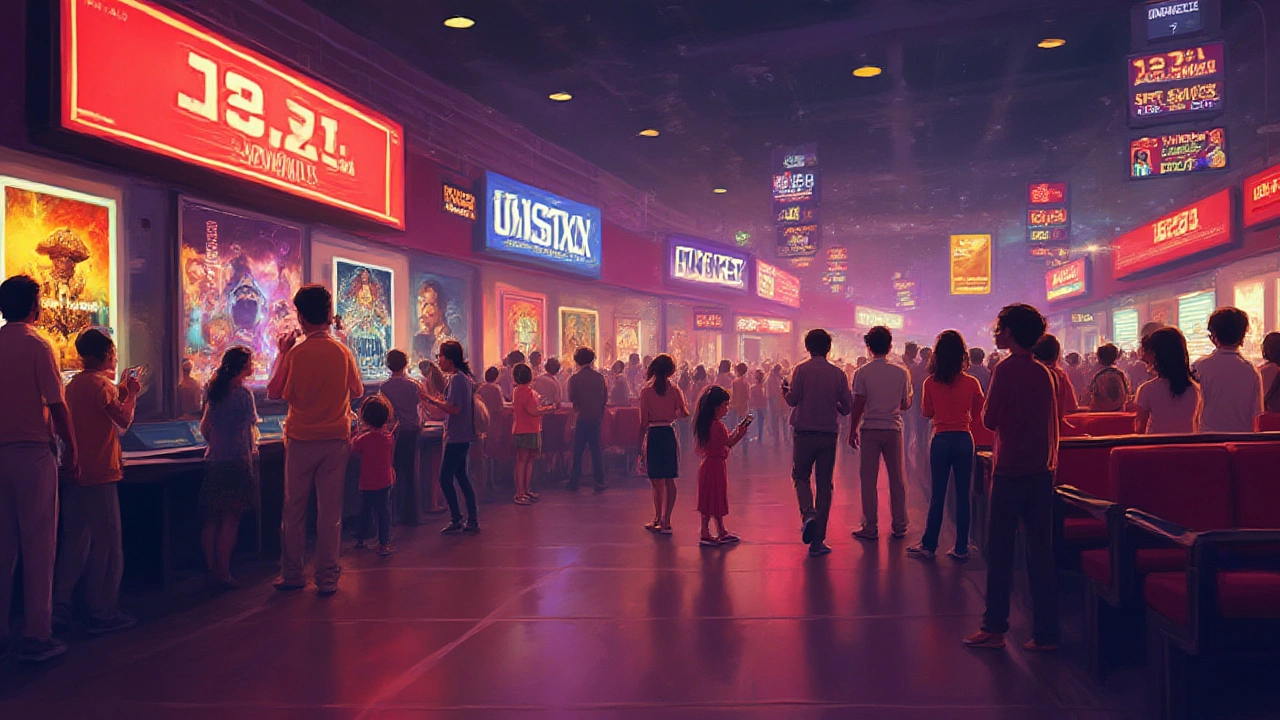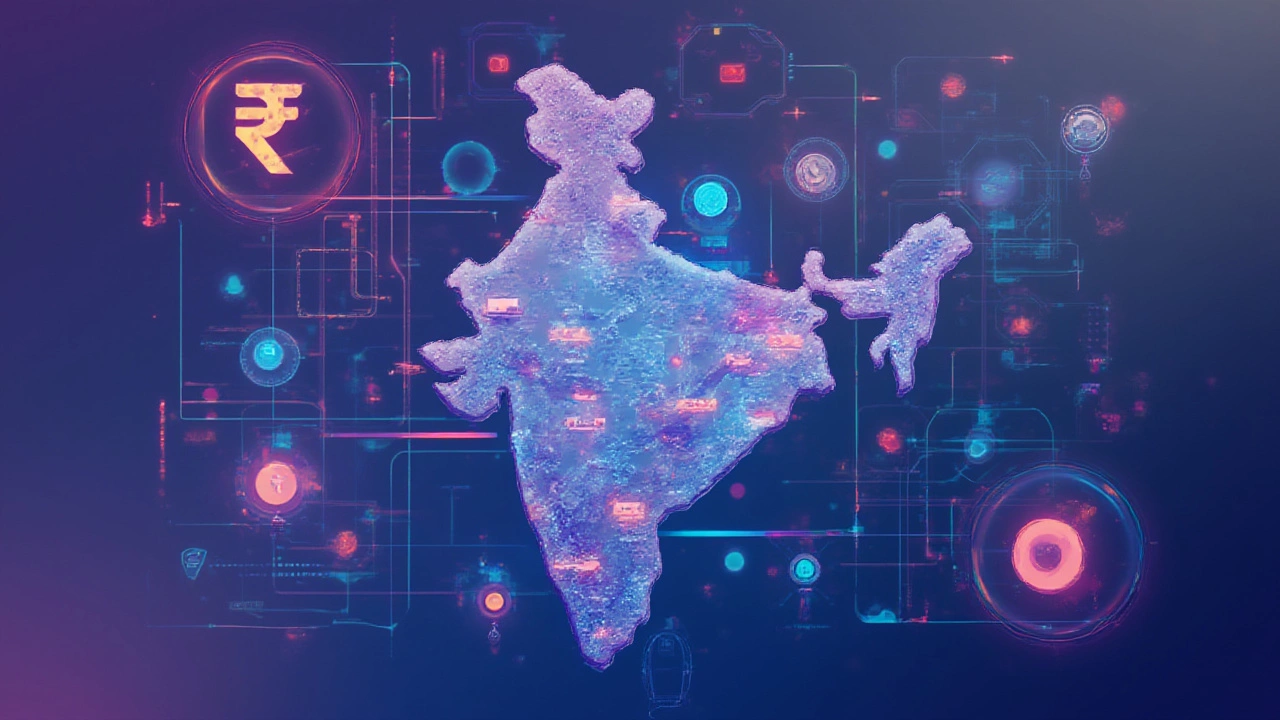Why Movie Tickets Cost More Online: Unmasking Fees and Hidden Charges
 Jul, 17 2025
Jul, 17 2025
Remember when buying a movie ticket just meant lining up at the box office, grabbing a popcorn tub, and hustling inside? Fast forward to today, punching a few keys on your phone and snagging a seat takes seconds—but it hits your wallet a lot harder. Digital convenience has won the war, but the price? Not just the ticket itself, but a pile of fees you didn’t bargain for. Ever wondered who's really pocketing those extra rupees or dollars tacked onto your online purchase?
The Tech Behind Tickets: When Convenience Inflates Costs
Booking a movie ticket online feels like cheating time, but it’s not magic—it’s a business juggernaut powered by tech, and that comes with a cost. Online booking platforms (think BookMyShow, Fandango, Atom Tickets) host huge amounts of traffic every hour, especially when blockbuster weekends hit. To keep these services running glitch-free, companies invest millions in robust servers, security protocols to keep your credit card safe, and mobile app upgrades.
The ticket price on these sites isn't just for your plush seat—hidden in that sum are digital platform fees, convenience fees, and often, payment gateway charges. A study in 2024 by Statista found that the average online platform fee in India ranged from ₹25 to ₹40 per ticket, while in the US, it hovered around $1.75—sometimes more for premium seats or 3D formats. Start stacking those if you’re booking for a group. There’s also investor-backed pressure: big booking platforms raise capital based not only on tickets sold but the extra margin they reel in via convenience fees. Ever noticed some theaters price tickets lower on their physical counter or own website? That’s a way for them to avoid shelling out a cut to middleman apps.
Plus, movie theaters themselves now face higher costs to manage electronic seating and integrate with booking systems—costs that didn’t exist when paper tickets ruled. In fact, The National Association of Theatre Owners reported that US multiplexes spent an average of $50,000 annually per location on tech upgrades by 2023. Someone has to foot that bill. Sadly, it’s mostly you.
Surprise—It’s the Fees, Not the Movies
The reality is, movie tickets get expensive online not just because of tech, but because of all the clever ways platforms and theaters bake in more charges. The infamous "convenience fee" is often the heftiest. It feels like a tax on your laziness, but it’s pitched as payment for saving your time, guaranteeing seats, and providing customer support (though try reaching actual support at 7 PM on a Saturday night).
Then come payment processing fees, which are slyly shifted from businesses to consumers. Every time you use a credit card, the platform pays a fraction of the ticket price, usually 2-3%. That doesn’t sound like a lot—until you scale it over millions of tickets and platforms pass most, if not all, of it onto customers. Scroll down at checkout, and you’ll see the total jump up, with “other charges” tacked on. At some venues, you’ll spot an “internet handling fee.” Why is the internet handled separately? No clear answer.
BookMyShow published financial summaries last year showing that 43% of their revenue from ticket sales wasn’t from the actual tickets, but from associated service charges and commissions. US and European ticketing platforms operate the same way, sometimes implementing dynamic pricing, where busier showtimes crank up the ticket and fee margins. It’s not even about blockbuster movies; even smaller indie screenings see unexpected markups.
| Country | Average Ticket Price (2024) | Average Online Fees |
|---|---|---|
| India | ₹220 | ₹30-₹45 per ticket |
| USA | $12.50 | $1.75-$3.25 per ticket |
| UK | £10.80 | £1-£1.95 per ticket |
On top of that, some platforms bundle in extras like "seat selection" as a premium feature. That’s wild, considering you used to stroll into any seat you wanted for free. And don’t overlook the markup on 3D, IMAX, or recliner seats, which can double the base price even before the first kernel of popcorn pops.

Who’s Getting the Cut? The Long Money Trail
Money from your online ticket splinters into a dozen little rivers. The theater gets its chunk, the online platform nabs a fee, and payment processors (Visa, Mastercard, RuPay) demand their slice, too. Sometimes, credit card companies offer "exclusive" movie offers—not out of generosity, but as business deals bringing loyal customers in, while they still take a 2-3% commission off each ticket. Local taxes also swing in, and in countries like India, GST ratchets it up by 18%.
In some regions, local municipalities pile on entertainment taxes, even if movies are your main hope for escapism. Theft-prevention tech (like QR-code scanning) and touchless experiences also get their share of the ticket pie, with costs spreading across every online ticket. And here’s the kicker—some theaters and chains make deals with major platforms, agreeing to higher listed prices, then pocketing a slice later as a “marketing fee.” It’s a spider’s web of profits and markups.
Here’s a simplified breakdown of a $12 online ticket in the US:
- Theater: $7.00 - $8.50
- Online booking platform: $1.75 - $3.25
- Bank/payment processor: $0.30 - $0.50
- Tax: $1.00 - $2.00 (varies by state/city)
- Other services: $0.25 - $0.50 (insurance, marketing, etc.)
Even small-town and independent theaters, desperate to fill seats, can’t escape these claws. They need digital platforms to compete with multiplex giants, and getting listed on popular apps means signing away another few percent of every sale. Some theaters try to balance things out by offering their own apps or box office discounts to draw back regulars, but most moviegoers crave the one-stop ease of a big aggregator site. In short—the convenience you’re paying for is feeding a long supply chain, not just the cinema’s popcorn fund.
How Moviegoers Can Outsmart Online Fees
No one likes coughing up more money for the same old seat, especially when you know most of it goes to digital middlemen. But you don’t need to resign yourself to paying top dollar. Want to beat the system and save a few bucks? Start by checking if your local theater sells tickets directly on their own website or app. Sometimes, you get a cleaner deal there—with lower or even no fees—and maybe a loyalty perk tossed in for good measure.
Here are some other tips that actually work:
- Look for mid-week discounts. Theaters drop prices for Tuesday or Wednesday shows, and online platforms sometimes run “no convenience fee” blitzes when demand dips.
- Sign up for theater loyalty programs. Even big chain apps offer points or discounts that offset the convenience markup after just a few shows.
- Use credit card rewards or partner offers. Some major cards refund service fees or run cashback deals, especially during blockbuster releases.
- Buy group tickets together in a single transaction. Consolidated bookings reduce repeated platform fees per ticket.
- Set price alerts on aggregator apps—special bundles and “early bird” deals appear weekdays or in off-hours.
- Try third-party voucher sites for promo codes—sometimes these stack on top of existing deals and chip away at fees.
One last thing to keep in mind: The next time you sigh at an extra charge during checkout, remember what’s bundled in. You’re not just paying for a ticket, but for the invisible cost of all the tech, security, and profit-sharing that the online convenience world demands. Knowing where your money goes is the first step to getting better value—and maybe fighting back a bit the next time Hollywood sends another superhero blockbuster flying into theaters.
movie tickets online aren't just more expensive because cinemas want to squeeze you. The tangled web of online platforms, fees, tech, and convenience charges is to blame—and the only way to dodge it is to shop smarter, pick your moment, and sometimes, embrace a little nostalgia for the ticket window.